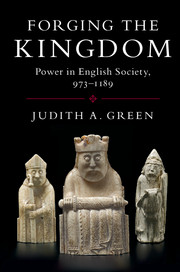
- Cited by 1
-
Cited byCrossref Citations
This Book has been cited by the following publications. This list is generated based on data provided by Crossref.
Weiler, Björn 2021. Paths to Kingship in Medieval Latin Europe, c. 950–1200.
- Publisher:
- Cambridge University Press
- Online publication date:
- May 2017
- Print publication year:
- 2017
- Online ISBN:
- 9781139018074


